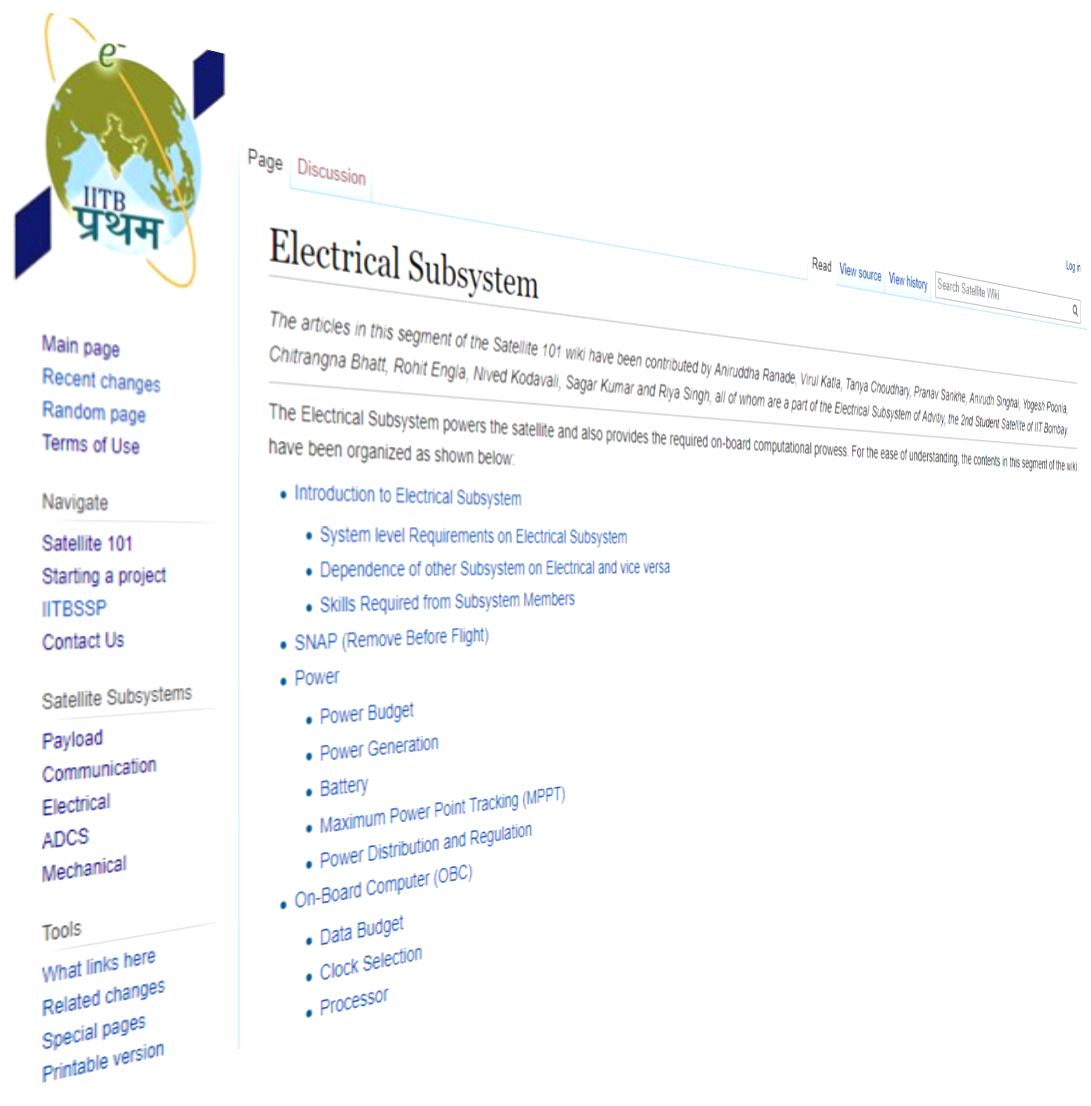
Satellite 101 Wiki
An initiative under the Student Satellite Team, IIT Bombay
Helping student teams across the globe getting started with their Student Satellite Projects, acknowledged by AMSAT-UK
On the occasion of National Science Day, 2018, the Student Satellite Team of IIT Bombay presented a small gift to India, in return for the love, support and appreciation that the team received from the nation throughout its journey. The team proudly presented the Satellite 101 Wiki, which is a systematic and organized compilation of the knowledge and the experience gained by the team through the journey of Pratham, IIT Bombay's first student satellite, aimed at helping various students and colleges across India, who wish to start off their own satellite projects.
After the successful launch of the first satellite of IIT Bombay, Pratham, it was felt that the knowledge and the experience accumulated by the Pratham team over the years should be systematically preserved for the future teams. No academic credits were provided for making Pratham. It was taken up by the students as an extra-curricular project. The entire project was student-run, and the team was self-taught, with mentorship and guidance from faculty members and support from IIT Bombay and Indian Space Research Organization (ISRO). Consequently, invaluable knowledge was accumulated by the team, which could not be gained through any academic course or from a book, but through experience and rigour, and it needed to be preserved. In parallel, we were approached by several students from all over India, who were seeking help in starting off a Student Satellite Project in their own college/university. Strongly motivated by their social goal to spread their knowledge and enthusiasm related to satellite and space technology among various aspiring students and universities across the globe, we were looking for a way of helping aspiring students in a detailed manner without compromising with the work of Advitiy, the second satellite of IITB. These requirements led to the birth of this Satellite 101 wiki.
I ideated, motivated the team members and launched the Wiki. I proof-read all the 100+ pages on the Wiki at the time of launch. I also coordinated with the Web team and decided the layout of the Wiki and put up all the pages online.
In the first week post the launch itself, we had viewers from 40+ countries around the globe. The Wiki post was re-tweeted by AMSAT-UK, the world's largest organization representing amateur student satellites.
The Wiki was covered by various leading national publications:
- Daily News and Analysis (DNA): Satellite Building Info now on Wiki, thanks to IIT Bombay
- India Times: In a first, IIT Bombay will now teach students how to build satellites